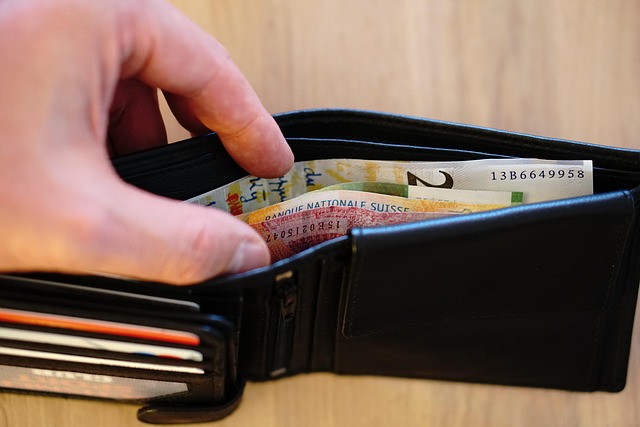Introduction
If you’re planning to apply for a skilled visa in Australia, one of the first questions you’ll likely ask is: “How much will it really cost?” Many applicants assume the skilled visa application fee is the only expense, but the reality is more complex. Alongside the official government charges, you’ll encounter a range of hidden costs—from medical exams and skills assessments to translations, police clearances, and even travel expenses.
Understanding the true cost of skilled migration to Australia is essential for planning your budget and avoiding unpleasant surprises. Whether you’re applying as a single skilled worker, with a partner, or as a family, the total outlay can quickly add up.
In this guide, we’ll break down:
- The official visa application charges (primary applicant, partner, and dependents).
- The mandatory additional expenses you’ll need to factor in.
- The hidden fees applicants often overlook.
- Real-world scenarios showing what a visa might cost for different applicant profiles.
- Practical tips to help you budget smarter and avoid costly mistakes.
By the end, you’ll have a clear picture of the total skilled visa expenses you should expect—so you can plan with confidence and focus on your migration journey, not unexpected bills.
Official Skilled Visa Application Costs
When you apply for a skilled visa, one of the first big expenses you’ll face is the official visa application costs set by the Australian government. These are the base charges everyone must pay, plus a few extra government-imposed fees. Understanding them clearly will help you budget properly and avoid surprises.
Government Visa Application Charges (VACs)
These are the Visa Application Charges (VACs) that you pay directly to the Department of Home Affairs. As of 1 July 2025, many of these VACs have increased due to indexation tied to inflation.
Here are some of the VACs you should know if you are applying for a skilled visa:
| Visa Subclass | VAC Before 1 July 2025 | VAC From 1 July 2025 |
| Skilled Independent (Subclass 189) | AUD 4,765 | AUD 4,910 |
| Skilled Nominated (Subclass 190) / Skilled Regional (Subclass 491) | ~ AUD 4,770 | AUD 4,910 |
Key points you should note:
- These VACs generally cover the main applicant. If you include family members (spouse/partner or dependents), there are additional applicant charges which are often a fraction of the primary VAC.
- The fee you pay depends on when your application is received. If the VAC rises in the period between lodging your application and when the Home Affairs department receives it, you’ll need to pay the new, higher fee.
Extra Government Charges
Beyond the base VAC, there are other government-mandated charges you may need to pay. These are often overlooked but can add up. Here’s what to watch out for:
- Surcharges for Payment Methods:
If you pay your VAC (or nomination/sponsorship fees) using certain methods like credit cards or PayPal, a surcharge may apply. For example, payment surcharges currently are ~1.40% for Visa/MasterCard/Debit Visa/Debit MasterCard, PayPal ~1.01%, UnionPay ~1.90%.
Make sure you check what your payment method will cost you, because even a small surcharge adds to the total cost. - Nomination/Sponsorship Fees:
If your visa subclass requires nomination by a state/territory or sponsorship by an employer, separate government fees may apply. These are distinct from VACs. (Note: these are not always needed for all skilled visa subclasses.) - Administrative Review / Tribunal Fees:
If something goes wrong — for example, your application is denied — and you appeal, there are fees for tribunals or reviews. These also increased from 1 July 2025. - Other Miscellaneous Government Costs: Depending on your location and situation, you may face:
- Visa-related charges for document verification or character checks by authorities in your home country.
- Charges for things like biometrics or identity checks if required by the Home Affairs program in your country. (Sometimes these are handled by Visa Application Centres overseas.)
Mandatory Additional Expenses (Often Overlooked)
When budgeting for your skilled visa, it’s easy to focus only on the visa application charges. However, several mandatory additional expenses sit outside the official government fees. These costs vary by applicant, country, and circumstances, but almost everyone will need to plan for at least some of them.
Skills Assessment Fees
Before you can lodge a skilled visa application, you usually need a positive skills assessment from the relevant assessing authority for your occupation.
- Who needs it: Almost all skilled migration applicants must prove their qualifications and work experience.
- Typical costs: Fees differ depending on the assessing authority but often range between AUD 300 and AUD 1,000+. For example, engineers, accountants, and IT professionals each have separate bodies with their own fee structures.
- Extra charges: If your documents are incomplete or expire, you may need to pay for a re-assessment or renewal, which can add significantly to your overall skilled visa cost.
👉 Tip: Ensure your paperwork is complete and accurate to avoid paying again for corrections or re-submissions.
English Language Testing Costs
Unless you hold a passport from certain English-speaking countries, you must prove your English proficiency through an approved test such as IELTS, PTE Academic, or TOEFL iBT.
- Cost per attempt: Around AUD 350–450.
- Hidden factor: Many applicants need to take the test more than once to achieve the required score, which doubles or triples the expense.
- Additional costs: Requesting extra score reports or priority results can add small but unexpected charges.
👉 Tip: Invest in free or affordable preparation resources before booking your test. It can save you from costly retakes.
Medical Examination Costs
Every skilled visa applicant (and included family members) must undergo a medical examination by an approved panel physician.
- Standard fees: Expect around AUD 300–500 per adult and AUD 150–300 per child, though prices vary by country.
- What’s included: A general health check, chest X-ray, and blood tests.
- Extra expenses: If the doctor requires follow-up tests or specialist reports, the costs increase quickly.
👉 Tip: Book your medicals only with a recognized panel physician, as results from non-approved clinics will not be accepted and could mean paying again.
Police Clearance / Background Checks
To prove you are of good character, you’ll need to provide police clearance certificates from every country you have lived in for 12 months or more over the last 10 years.
- Cost per country: Usually AUD 50–200, depending on the issuing authority.
- Hidden expenses: If your documents are not in English, you must pay for translation and notarization, which can cost AUD 20–50 per page.
- Multiple certificates: Living in more than one country can multiply this cost quickly.
👉 Tip: Apply early, as processing times vary and delays may affect your visa application timeline.
Professional & Third-Party Costs
When you apply for a skilled visa, you’ll not only pay government and mandatory charges, but also extra professional & third-party costs. These often add up materially. Below are key categories you should budget for.
Migration Agent / Lawyer Fees
When you hire a migration agent or lawyer, you pay for more than just someone filling out forms. They bring expertise, avoid mistakes, and can save you money by ensuring your application is accurate and complete. But how much can that cost?
- Fee ranges:
For skilled visas like subclasses 189, 190, or 491, migration agent fees in Australia often range from AUD 3,000 to AUD 5,500 or more, depending on complexity, number of dependents, whether state nomination is involved, and whether you get full representation. - What influences agent costs:
- Visa subclass & service scope – full service (everything from skills assessment, submission, communication) costs more than lodgement-ready or DIY-assist services.
- Complexity of your case – having partners, children, documents from multiple countries, non-standard evidence, or urgent timelines increases cost.
- Registered status & reputation – agents who are MARA-registered (or lawyers) with strong track records often charge premium fees.
- Value you get:
When you use a good migration agent or lawyer, you gain:
• Help avoiding resubmission costs (e.g. for missing documents).
• More accurate forms, reducing risk of visa refusals.
• Clear timelines and likely costs, which help in budgeting. - Red flags & tips:
• Ask for a written estimate upfront, including what is and isn’t included.
• Be wary of unusually low fees—they may omit crucial work or use inexperienced staff.
• Check whether GST (Goods & Services Tax) is included.
Translation, Certification, and Notarization Fees
You’ll need certified translations and/or notarized versions of documents that aren’t in English. These are official requirements in many visa subclasses. They cost more than simple “translation only” services. Here’s what to expect:
- Translation costs:
- Many providers charge per word, especially for NAATI-certified translations. A typical rate is around AUD 25 per 100 words for standard documents.
- Fixed-price per document options exist for common documents (birth or marriage certificates, degree transcripts). For example, simple certificates may cost AUD 60-70 per document.
- Certification & notarization:
- Notary public fees in Australia typically run from AUD 70 to AUD 150 per document, depending on document type, state, and whether you need mobile or urgent service.
- If the translation also needs an affidavit, apostille, or verification by a notary, expect additional surcharge. Each added step raises the cost.
- Factors that drive up costs:
- Urgency or express service.
- Number of documents / number of pages.
- Complex or technical documents (academic transcripts, legal papers).
- Rare languages or uncommon language pairs.
- What to check:
- Whether the translation is “NAATI-certified” vs non-certified (for immigration use, authorities often require NAATI).
- Whether notarization includes witness signatures or apostille.
- Whether fees are inclusive of taxes.
Document Handling & Courier Costs
Even after translation and legal certification, you often need to physically handle documents, send them securely, or courier them internationally. These “hidden” third-party costs can surprise you. Here are details:
- Courier / postage:
- If your original documents or certified copies are required overseas (or by a consulate or embassy outside your country), secure international courier can cost materially (tens to hundreds of AUD/USD, depending on weight, urgency, destination).
- Within Australia or between states, fees are lower, but if you require tracked or insured delivery, expect higher charges.
- Document copying / scanning / storage:
- You may need high-quality scans, even notarized photocopies. Some agencies charge for scanning, printing, or certifying copies.
- Keeping originals safe, or obtaining replacements for lost documents, can also add cost if you didn’t prepare ahead.
- Handling fees by service centres:
- Agencies, VFS centres or visa lodgement service providers may have “service fees” for document submissions, biometrics, or using their counters. You may pay extra for convenience.
- If documents must be submitted physically to Home Affairs or respective offices, handling/courier fees apply.
Hidden & Unexpected Costs Applicants Forget
When applying for a skilled visa, many people budget for the main application fee—but miss smaller, yet critical costs. These hidden & unexpected fees can add up fast. Let’s walk through some of the costs you might forget, so you can plan your skilled migration budget more accurately.
Retake & Resubmission Fees
You might assume once you submit your application, you’re done—but sometimes you’ll need to pay again. Common areas where retakes or resubmissions happen:
- Skills assessment re-submission: If your skills assessment authority requires additional documents or detects errors in your documentation, you’ll need to submit again. That means extra fees—and possibly delays.
- English test (IELTS, PTE, etc.) retakes: You may need to retake for a higher score. Each attempt costs money.
- Medical examination rechecks: If your initial health checks show anomalies or if some tests are flagged, you might need further tests, which cost more.
- Visa application re-application after refusal: If your first visa application gets refused due to missing or incorrect documentation, you’ll often need to pay the application charge again when you reapply.
These costs tend to be overlooked, but they can affect your total skilled visa cost significantly. Always leave a buffer in your budget (say 10-20% extra) to cover retakes or reapplications.
Family & Dependent Costs
If you’re applying for your spouse, partner, or children, you need to factor in a host of extra expenses. Some of these are obvious, others less so:
- Dependent application fees: Visa charges for your partner/spouse and children are separate. They can add thousands, depending on how many dependents you include.
- Health/medical exams for family members: Each family member must usually meet health requirements, which means paying for medicals for everyone. Costs vary by age, country, and what tests are required.
- Police checks/character clearances: If dependents have lived in other countries, you may need police certificates, translations, etc. That can add to paperwork and cost.
- Schooling & education costs (if moving early): If children arrive with you or shortly after, you’ll need to budget for school fees (if private or overseas schools), uniforms, books, supplies.
- Health insurance: In many cases, you’ll need to take private or temporary insurance for your dependents until any public coverage (like Medicare) kicks in, which can increase your recurring costs.
Travel & Relocation Costs
Even after your visa is granted, getting to Australia and settling in can cost more than you expect. Here are things to include:
- Flights: Airfare for you + each family member can be substantial, especially from distant countries.
- Luggage / shipping personal belongings: If you plan to bring many items or furniture, shipping or excess baggage charges can shoot up.
- Temporary accommodation on arrival: Hotels or short-term rentals until you find long-term housing.
- Bond / rental deposit: When you rent, you’ll often pay several weeks of rent in advance plus a security bond.
- Furniture, utilities, setting up a home: You may need to buy appliances, furniture, pay for internet, mobile, electricity, gas, water—connection fees too.
- Travel for interviews / medicals: If required to travel internationally for a panel physician or visa interview, you need to budget for flights, local transport, accommodation.
Opportunity Costs (Less Visible)
These are costs that aren’t always financial outlays but still matter. They affect what you lose in the process.
- Time off work: You may need to take leave for medicals, English tests, gathering documents, or attending appointments. Lost wages may add up.
- Delays/processing time: Longer processing means staying longer in your current location (with current costs), or delaying plans, which could cost you extra in rent, living expenses.
- Cost of errors / doing things yourself: If you skip professional help (or don’t use it properly), you may make errors that require corrections or amendments, causing both extra fees and extra time.
- Stress & mental load: While not a direct fee, emotional & administrative burden can lead to hiring help, or paying for premium services (expedited, courier etc.).
What You Can Do to Mitigate These Costs
Here are a few tips you can apply so you don’t get caught off-guard by the hidden expenses:
- Build in a safety buffer in your budget (e.g. 10-20% extra above your estimated cost).
- Make a complete checklist of what all costs might apply to you—include dependents, travel, exams.
- Use reliable sources (official government pages) to check health, character, vaccination, English test requirements for your specific country.
- If needed, engage a migration specialist before submitting major parts of your application to avoid mistakes and resubmissions.
- Plan your relocation ahead—research costs of flights, housing, utilities in the city where you’ll live, etc.
Example Scenarios: What It Really Costs
Below are three sample scenarios to help you understand the kinds of expenses you might face. Use these to estimate your total skilled visa cost in Australia (government fees + hidden/extra fees).
Note: All figures are estimates and subject to change. They are provided for illustrative purposes and do not constitute financial advice.
Case Study 1: Single Skilled Worker Applicant
Profile:
- You are applying alone (no partner, no children).
- Applying under a skilled visa subclass (e.g. Subclass 189 / 190 / 491).
- Reside outside Australia.
| Cost Item | Estimated Cost (AUD) | Notes / What It Covers |
| Visa Application Charge (main applicant) | ~ AUD 4,900 | The government visa fee for the skilled visa subclass. |
| Skills Assessment | AUD 500–1,500+ | Depends on assessing authority, profession, trade vs non-trade. |
| English Test | ~ AUD 300–350 | Cost of one attempt (IELTS / PTE / etc.). |
| Medical Examination | ~ AUD 350–500 | Standard health checks + any additional tests required. |
| Police / Background Checks | ~ AUD 50–200 | From countries you’ve lived in; cost + translation if needed. |
| Document Translation / Certification | ~ AUD 100–300 | Depends on number of documents, languages. |
Estimated Total: ~ AUD 6,500 – 8,500
This includes government visa fee, skills assessment, test, medicals, and basic extras. Hidden costs like courier, extra medical tests, or delays may add to this.
Case Study 2: Skilled Worker with Partner
Profile:
- You + partner applying together. No children.
- Same subclass as above.
| Cost Item | Estimated Cost (AUD) | Notes / What It Covers |
| Visa Application Charge (main applicant) | ~ AUD 4,900 | As in Case 1. |
| Visa Application Charge (partner / secondary adult) | ~ AUD 2,450 | Government fee for partner or secondary adult. (True Blue) |
| Skills Assessment (for you) | ~ AUD 500–1,500+ | Same as Case 1 for you. Partner may not need if not required by subclass. |
| English Test(s) | ~ AUD 600–700 | One for you + one for partner if required. |
| Medical Examination (you + partner) | ~ AUD 700–1,000 | Two people. |
| Police / Background Checks (both) | ~ AUD 100–400 | Depending on countries of residence. |
| Document Translation / Certification | ~ AUD 200–500 | More documents. |
Estimated Total: ~ AUD 9,000 – 11,500
When you include your partner, your visa cost almost doubles in many parts (application fees + additional mandatory checks). Hidden fees may still apply (e.g. extra medical tests, dependents’ expenses if any).
Case Study 3: Skilled Worker with Family of Four
Profile:
- You + partner + 2 children (one adult/older, one minor).
| Cost Item | Estimated Cost (AUD) | Notes / What It Covers |
| Visa Application Charge (main applicant) | ~ AUD 4,900 | Same base. |
| Visa Fee for Partner (adult) | ~ AUD 2,450 | Secondary adult. |
| Visa Fee for Child under 18 | ~ AUD 1,230 | Government fee per child under 18. |
| Visa Fee for Child over 18 (if applicable) | ~ AUD 2,450 | If older child applying as dependent adult. |
| Skills Assessment (you + maybe partner) | ~ AUD 500–1,500+ each | Partner may not always need assessment depending on subclass. |
| English Tests for required adults | ~ AUD 600–1,000 | Perhaps two tests. |
| Medical Exams (4 people) | ~ AUD 1,200–2,000 | Adult + adult + child + child. |
| Police Checks (for all, where required) | ~ AUD 200–800 | Multiple countries, multiple persons. |
| Translation / Certification for family documents | ~ AUD 300–600 | More docs, maybe multiple languages. |
Estimated Total: ~ AUD 14,000 – 18,000+
With a family of four, your skilled migration cost climbs significantly. Government visa charges alone form a large base. Hidden & incidental costs (medical, tests, translation) add up fast. Also plan for living, relocation, and schooling expenses once you arrive (outside visa cost, but part of migration budget).
Key Takeaways (from the Scenarios)
- The visa application fee (government charge) is often your biggest single cost.
- Mandatory extras (skills assessment, health checks, police clearances, English tests) substantially increase the total.
- With each additional person (partner, children), costs increase nearly linearly for many items.
- Hidden & unexpected costs — medical extras, document translations, courier fees — can push your total even higher.
- Currency fluctuations (if paying from outside Australia) and regional price differences for medical/tests may affect your costs.
Tips to Plan & Manage Skilled Visa Costs
Applying for a skilled visa is not just about paying the visa application fee. Between skills assessments, English tests, medical exams, and other charges, costs can add up quickly. The good news is that with careful planning, you can manage your expenses and avoid unnecessary financial strain. Here are some practical strategies:
Budget in Advance for Each Stage
Create a step-by-step budget that reflects the major stages of your application:
- Skills assessment
- English test
- Medical examination
- Police clearance
- Visa lodgement fee
By setting aside funds for each stage, you’ll avoid the stress of lump-sum payments. Families should plan for dependents’ costs early, including health checks, schooling, and private health insurance if required.
Be Smart with English Test & Assessment Fees
English proficiency tests like IELTS or PTE can be costly if you need multiple attempts. Prepare thoroughly before your first attempt by using free or low-cost practice materials. Similarly, check the requirements of your skills assessment authority to ensure your documents are complete. This reduces the risk of paying retake or resubmission fees.
Time Your Payments Strategically
Not every fee is due at once. For example, you only need to pay for medical exams and police checks closer to visa lodgement. Staggering payments allows you to spread out costs and manage your cash flow more effectively.
Plan for Hidden & Post-Arrival Costs
It’s easy to overlook relocation costs, such as flights, initial accommodation, or shipping personal items. Families should also factor in schooling expenses and ongoing healthcare needs. Planning for these “after-visa” expenses will give you a clearer picture of the total cost of skilled migration.
Decide When to Get Professional Help
Hiring a migration agent is optional, but a professional can save you money by preventing mistakes that may lead to visa reapplication costs. If you choose to work with one, look for transparent migration services that provide upfront pricing.
💡 Blue Orbit helps applicants map out costs step by step, offering tailored advice on when and how to pay fees. With expert guidance, you can budget confidently and avoid costly surprises.
Final Thoughts
Applying for a skilled visa is more than just paying the government’s application fee. By now, you’ve seen how skills assessments, English tests, medical exams, police checks, and even hidden expenses like translation or travel costs add up to the true cost of skilled migration to Australia. These aren’t always obvious at the start, but planning for them helps you avoid financial surprises along the way.
The key takeaway is simple: treat your visa journey as a long-term financial commitment, not a one-off payment. Whether you apply alone, with a partner, or with your whole family, the costs will vary — and understanding these differences allows you to budget with confidence.
This is where choosing the right support matters. Mistakes in your application can mean costly reapplications or lost time. By working with an experienced team, you can reduce risks, manage your expenses effectively, and focus on your future in Australia.
👉 At Blue Orbit Services, we specialize in transparent, end-to-end migration support. Our team ensures you understand every fee upfront, guides you through the skilled migration process, and helps you avoid unnecessary costs. If you want clarity on your skilled visa expenses and confidence in your next steps, we’re here to help.

About the Author:
Kunal is an Australian Solicitor with over 10 years of legal experience in both Australia and abroad. Admitted to the Supreme Court of Victoria, he uses his unique background to help businesses, professionals, and individuals with their legal, commercial, and migration needs.




